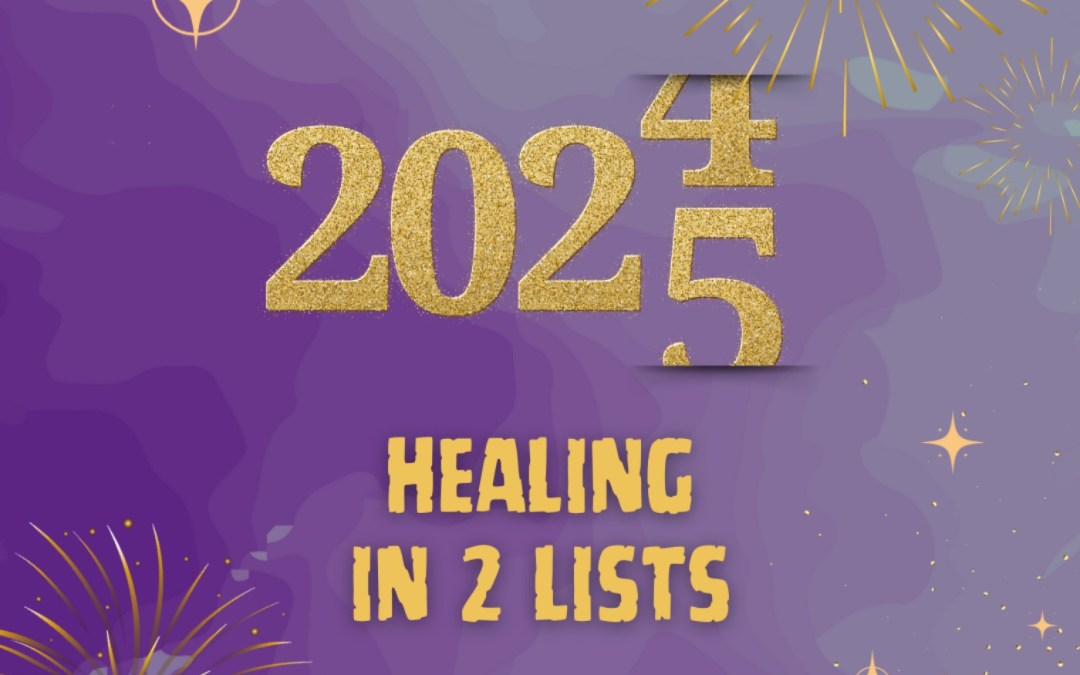I have more to say than the last episode suggested. Why are t-perspectives wrongly sized? How do parental egos...
Posts Tagged "trauma therapy"
self-Love pt 6: PERSPECTIVE RESIZING (reparenting your FUCLRs)
FUCLR: Fucked Up Core Love Rules. A trauma signature. Let's make sure our love perspectives aren't too large or too...
Self-Love pt 5.75: Love Eliciting Actions
THE TIME IS NOW. Going beyond "love language," we create our own emotional state with granular love actions that cost...

00 MRVn ALONG: Parasocials
NEW EPISODE FORMAT: EP 0 Parasocial relationships. Gift or curse? Both. Let's do this responsibly, applying what we...
Actual self-Love pt 5.?: FEEL ING Love. not abuse.
Let's talk about feeling love. And removing the stains of abuse. Transcript: Greetings, fuckers. Let's talk about...
TMFRs 2025 A nu Plan
Transcript: Greetings, fuckers. Let's talk about plans for 2025 in just a couple of minutes here. So you may remember...

2025: Compassionately Healing in 2 Lists
What do we need this year!? Gentle self direction so we don't regress! Let's talk about recovery in difficult times...

Actual self-Love pt 5.5 (still?): The Thaw
We've refound ourself. Now we need ammo (gentler feelings) to fire away. Let's start thinning the wall around that...

FEAR OF BEING YOU.
This eve we're visited by ghosts three: fear of being, fear of being you, and fear of being you among others. Don't...

DIS-ASSOCIATION
You're with your self... and then you are not. Disassociating into the brain, the body, or the ether. How do we...

3.4 Vulnerability, Intimacy, and Trust Issues in Relationship
Explore the challenges of vulnerability, intimacy, and trust in relationships for individuals with Complex PTSD. Learn about common relationship patterns, the importance of human connection in trauma recovery, and strategies for building healthier relationships. Discover how trauma impacts attachment styles and the potential for healing through supportive connections.

3.3. Subconscious Self-loathing
Explore the concept of subconscious self-loathing in Complex PTSD and how Internal Family Systems (IFS) therapy can aid in recovery. Learn about integrating conflicting personality parts, understanding adaptive mental strategies, and developing self-acceptance. Discover how recognizing and working with different aspects of your psyche can lead to improved self-esteem and mental health.

EXTRA | Hardening isn’t Healing
Explore the difference between hardening and healing in trauma recovery. This podcast episode discusses how protective strategies can sometimes hinder true healing, emphasizing the importance of balance and vulnerability. Learn about the challenges of black-and-white thinking in trauma responses and the value of finding middle ground. Gain insights into developing healthier approaches to relationships and personal growth post-trauma.

2.11. Forming new lives | AKA – reintegration efforts for lasting change
Explore the integration phase of trauma recovery, focusing on both internal and external processes. Learn about reconnecting with your body, managing anxiety, processing emotions, and integrating fragmented memories. Discover strategies for making behavioral changes, restructuring your environment, and overcoming fear to support long-term healing. Understand the importance of balancing inner work with external life changes for comprehensive trauma recovery.

2.10. The resources needed for brain recovery | AKA – mediums for new perspectives
Explore the essential resources needed for trauma brain recovery: time, space, and energy. Learn about the challenges of modern life in creating these resources and discover strategies for prioritizing self-care and setting boundaries. Understand the importance of restructuring daily life to support brain healing and cognitive restructuring. Gain insights into planning for long-term changes to support ongoing trauma recovery.

2.9. Loss of functionality | AKA – overcompensation, collapse, resisilence v. resistence
Explore the concept of loss of functionality in complex trauma recovery. Learn about personality parts, symptom masking, and the impact of trauma on executive functioning. Understand post-traumatic collapse and the importance of resilience in recovery. Discover strategies for managing symptoms and overcoming self-judgment during the healing process.